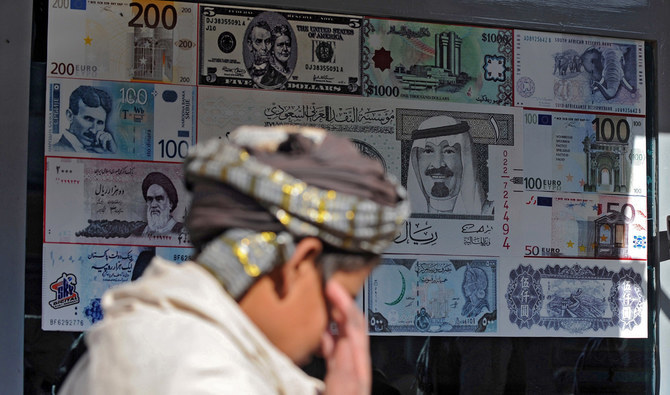KARACHI: Pakistan's foreign exchange reserves have reached $22.18 billion, with more than $16 billion held by the central bank, after a span of four years, as the country raised $2.5 billion by issuing Eurobonds, said an official statement released on Thursday.
"The State Bank of Pakistan (SBP) has received the proceeds of government's $2.5 billion Eurobond issuance in its account," said the statement circulated on Thursday night. "As a result, SBP's foreign exchange reserves closed above $16 billion, their highest level since July 2017."
According to economic analysts, the inflows have brought the government in a more comfortable position to pay for its imports, including any COVID-19 vaccines.
"The inflow of $2.5 billion has raised the cushion of the State Bank and it will also improve the country's current account position," Dr. Abid Qaiyum Suleri, member of the government's Economic Advisory Council (EAC), told Arab News on Friday.
"The inflows have made it easy for the country to make payments for imports of COVID-19 vaccine, wheat or sugar due to an improved reserves position," he continued. "This is also the right time to tap international market."
Some economists also suggested that Pakistan should utilize the Eurobond proceeds to pay off some of its debts.
"The country has arranged the liquidity to pay off previous external debts because time to make these payments is due and the prices of oil are also increasing with the ease of lockdown," Dr. Vaqar Ahmed, joint executive director at the Sustainable Development Policy Institute (SDPI), said.
"For the payment of external debts and oil imports the Eurobond proceeds can be utilized," he added.
The inflows did not generate any major fluctuations in the currency and interbank markets as the rupee only appreciated 0.05 percent to close at Rs152.94 against the greenback on Friday.
"Going forward the rupee can come under pressure due to debt servicing since the country is availing G20 debt relief at present," Samiullah Tariq, head of research at the Pakistan-Kuwait Investment, told Arab News. "Only strong and enduring inflows can resist the fall of rupee. Otherwise, we expect three to four percent depreciation in the long run."
Despite its limited impact on the national currency, an official statement announced that the country had returned to the international market for the first time by issuing securities since 2017.
"Pakistan has entered the international capital market after a gap of over three years by successfully raising $2.5 billion through a multi-tranche transaction of 5, 10 and 30-year Eurobonds," the finance ministry said on Thursday.
"The transaction generated great interest as leading global investors from Asia, the Middle East, Europe and the US participated in the global investor calls and the order book," it added.
This is for the first time that Pakistan has adopted a program-based approach with registration of Global Medium-Term Note program.
"The program will allow Pakistan to tap the market at short notice," the ministry continued in its statement. "The government intends to make full use of this program and become a regular issuer in the International Capital Markets."



















